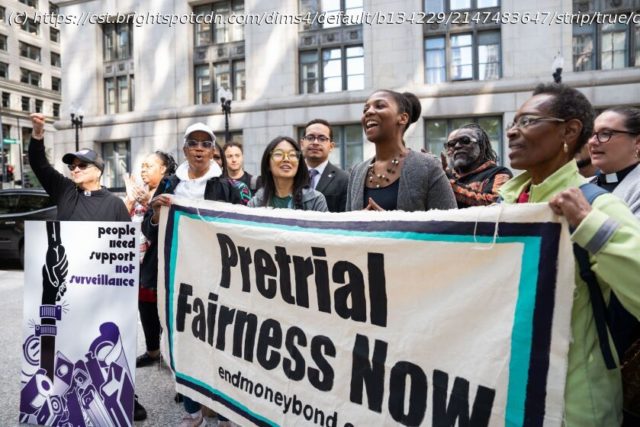It’s been two years since the Pretrial Fairness Act was passed, but questions remain on who will be jailed and who will not.
Illinois becomes the first state in the nation today to completely remove cash bail as a condition to be released ahead of a criminal trial.
Here’s how the new system will work, and some of the questions still to be answered.Who will not be jailed?
Under the new law, people who are charged with the state’s lowest level offenses will likely never set foot in a jail cell, including at a police station after their arrest.
People charged with an offense lower than a Class A misdemeanor — littering, some speeding charges and possession of marijuana over the legal limit — will likely be released with a citation and a court date without having to be processed at a police station.
In these cases, people usually face no more than six months in prison if convicted and often are released on probation without any incarceration.
However, law enforcement agencies will still be given discretion in certain cases. For example, if a person continues to commit the offense after being cited, they can be taken into custody and held until they appear before a judge, which must occur within 24 hours.
People can also be taken into custody if they can’t be properly identified, or if police believe a person poses a danger to the community or themselves. Police will have to explain their decision to hold the person.What about more serious misdemeanors?
Class A misdemeanor offenses are slightly more serious, but still cover a lot of ground. They include shoplifting, simple battery, trespassing in a car or on property, possessing alcohol as a minor and street racing.
A person facing a Class A misdemeanor will be arrested and taken to a police station for booking, but should be released with a future court date instead of being taken to jail.
Домой
United States
USA — Sport Illinois becomes first state in nation today to eliminate cash bail. Here’s...






